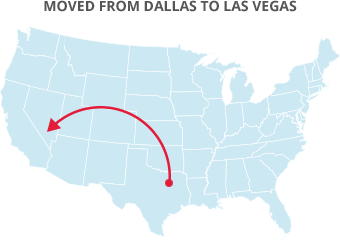

 There's something about a big stack of boxes and rolls of packing tape that is refreshing--here's your chance to go through all your stuff and carefully wrap your treasures, so when you get to your new house and start unpacking the boxes it will feel just like Christmas morning when you were a kid. Pretending for a minute that's how the whole scenario really unwinds, and you're not running through the house like a maniac tossing heirloom crystal in with the bowling balls, make sure you've got the right packing supplies for your moving project.
There's something about a big stack of boxes and rolls of packing tape that is refreshing--here's your chance to go through all your stuff and carefully wrap your treasures, so when you get to your new house and start unpacking the boxes it will feel just like Christmas morning when you were a kid. Pretending for a minute that's how the whole scenario really unwinds, and you're not running through the house like a maniac tossing heirloom crystal in with the bowling balls, make sure you've got the right packing supplies for your moving project.
Boxes and tape are some of the most important components of packing, and all boxes and tape are NOT created equal. It's okay to throw random coffee mugs in an old microwave box and stick it in the top of the pantry, but to pack, stack, and transport that box, it will collapse like a house of cards and you'll wind up with a lot of broken crockery.
If you're packing yourself, do some research into the materials before you get started. If you're hiring a moving company to do the actual moving, they will probably have the right heavy-duty boxes, tape, and wrapping stuff you'll need. If not, storage facilities, big box stores, and the internet are good sources for your supplies, but since you can't do tactile research digitally, don't rely on reviews to make your decision--everybody packs differently and "sturdy" and "solid" are highly subjective terms.
Look for boxes that are corrugated--a layer of wavy fiber between the inner and outer layers of heavy cardboard. The corrugated gives the box structure and stability, so when you stack them on the truck they don't collapse. There are varying degrees of rigidity within the corrugated realm, so you can get the box strength you need for a given item--go with the strongest duty boxes for the most fragile and the heaviest things you'll pack.
While you're buying boxes, load up on the small ones--heavy things go in small boxes, bulky lightweight ones go in the bigger boxes. For example, books weigh a lot and should go in a small box. Blankets and pillows are comparatively lightweight and go in the bigger ones.
Buying inexpensive, low quality tape is where many DIY movers get frustrated. If it's cheap, it won't adhere well. Worse, it will stick to itself coming out of the gun and tear in tiny little pieces and then you have to pick off the needle end and try to get it to unstick in one piece. Splurge on a high-quality tape gun or two with a padded handle--you'll be glad you did when you're seventy-five boxes in with a hundred more to go. It's also a good idea to buy your tape in bulk--it costs less and you can usually return what you don't use.
 There are lots of options for padding inside the boxes. Old towels and linens are magic when you need something lining the box, like when you're packing shoes and don't want them banging around.
There are lots of options for padding inside the boxes. Old towels and linens are magic when you need something lining the box, like when you're packing shoes and don't want them banging around.
Newsprint is hands down the best option for almost everything--from wrapping mugs (thread a twisted end through the handle and stuff the other ends inside once it's wrapped) to books to small appliances.
Bubble wrap can get expensive, but get the good stuff anyway, since that's what you'll use it for. The bubble size varies, but a good rule of thumb is for your bubble size to match the item size--save the big bubbles for padding around the entire box. Feel the wrap before you buy, and see how strong it is when you twist and pull it. If it's weak or doesn't feel like the bubbles hold, go with another brand.
If you haven't moved in a while, and you go box shopping, prepare to be amazed at the options you have. When your parents moved, they probably bought their tape and boxes and had the whole neighborhood saving newspapers for months. Now, there are lots of specialty moving supplies you'll see on the shelves--some are really worth the extra money, some are just reinventing the wheel--it's up to you to figure out what's going to work best for you. Again, make sure you're getting good quality--you don't want your mattresses in flimsy plastic sheeting.
Now that you've got your smalls under control, focus on how you're going to get the big stuff out the door--the furniture, the lawn mower, the grill--but don't fear, help is on the way. For some of these things renting equipment is the best way to go.
Your furniture is more fragile than you think--surface dents and scratches are entirely too common when things come off the truck. You can avoid these with some simple protection; again, be sure you're getting good quality materials that stand up to a lot of wear and tear.
The last things you'll need are for the really heavy and bulky stuff. Unless you have these already, plan to rent.
However you're actually transporting your household, your local moving company will be able to provide you with all of the supplies you'll need to move. Just remember that you're moving your entire life in these boxes, so take care that your moving supplies are up to the task.

